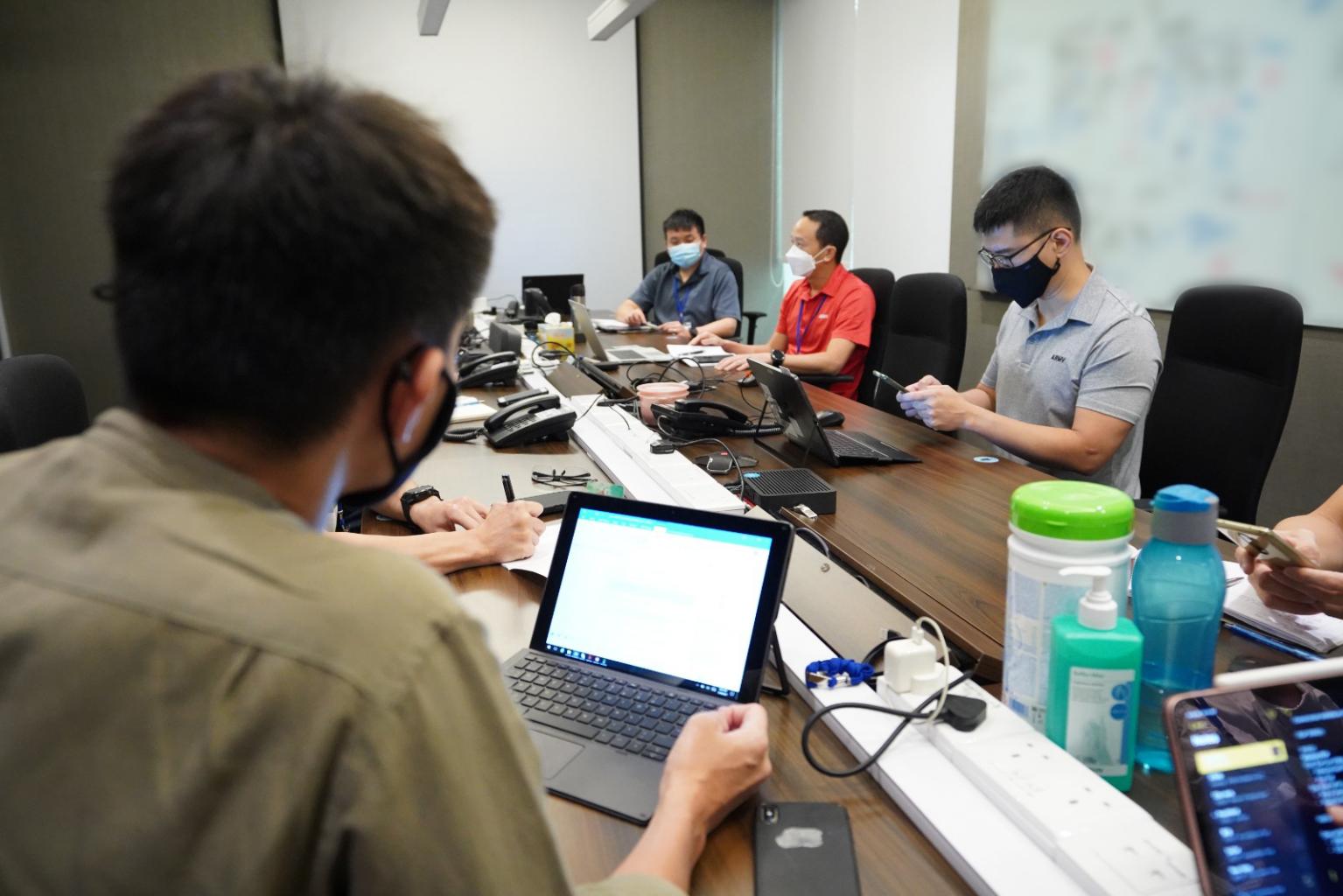More than 200 SAF personnel working to improve Covid-19 home recovery programme
Sign up now: Get ST's newsletters delivered to your inbox

Since Sept 29, SAF personnel have been manning hotlines to provide information to patients recovering at home.
PHOTO: NG ENG HEN/FACEBOOK
SINGAPORE - Steps are being taken to address teething issues faced by Covid-19 patients under the home recovery programme that have seen some failing to receive guidance despite calling the Ministry of Health (MOH) hotlines.
In a Facebook post on Friday (Oct 1), Defence Minister Ng Eng Hen said more than 200 personnel across the Singapore Armed Forces (SAF) have been roped in to help the patients.
Since Sept 29, they have been manning hotlines to provide information to patients recovering at home.
"We know that there are many gaps in the service delivery, as cases rose exponentially and are expected to rise further," wrote Dr Ng.
"Rest assured that the SAF is pouring resources quickly to improve the situation in many aspects."
These include more phone lines and home recovery buddies, and better coordination with telemedicine providers, coupled with grassroots support from the People's Association.
Dr Ng said the different organisations want residents to be reassured that they are being watched over carefully while recovering at home, and that help is accessible.
"If the majority of infected patients report a good and safe experience recovering at home, as they should, then our hospitals and Covid-19 treatment facilities can focus on the elderly or vulnerable who need treatment there," added Dr Ng.
More than 50 per cent of patients are recovering at home under the programme, the multi-ministry task force tackling Covid-19 noted on Saturday during a virtual press conference.
This care management model is for those who are fully vaccinated, aged 12 to 50 years old, have mild or no symptoms, and have no severe comorbidities or illnesses.
They should also not have household members who are vulnerable.
At the press conference, Health Minister Ong Ye Kung acknowledged that many patients on home recovery had tried to call the hotlines without success.
"A lot of work and resources have been devoted to resolve the teething issues that were encountered," he said, adding that almost all new cases every day can be taken on "quite smoothly".
Mr Ong, who co-chairs the task force, said telemedicine services have also been ramped up with more providers brought in, including primary care providers.
Among other things, telemedicine providers screen patients virtually to confirm that they are suitable for home recovery, provide teleconsultations and in-person swabbing, and deliver medication.
Meanwhile, the Government is beefing up capacity at hospitals and treatment facilities.
Mr Ong said all these changes are to handle the next doubling cycle, which he noted could see a daily count of 3,200 local community cases, or possibly 5,000 new cases each day.
The task force on Saturday acknowledged that navigating the various healthcare programmes and protocols has also been confusing.
"This issue needs to be addressed because if people don't understand, they can't do their part to exercise personal responsibility, much less help others," said Mr Ong, adding that the protocols are being looked at with a view to introduce changes soon.
The intention is to "make it simple and as easy to remember as possible", so that everyone can do his part in the fight against Covid-19, he said.


